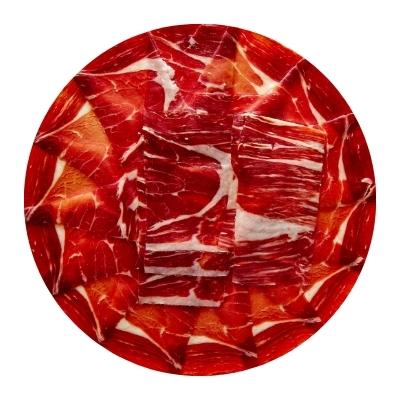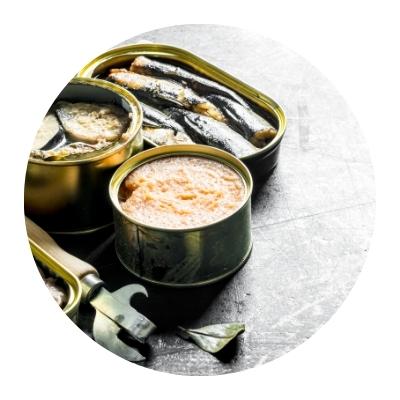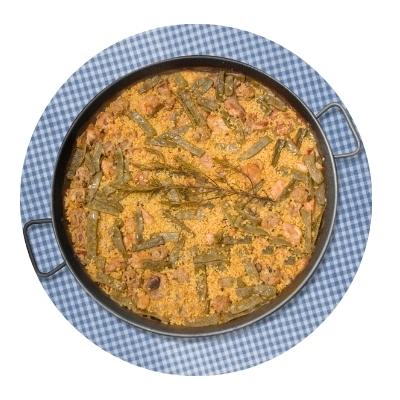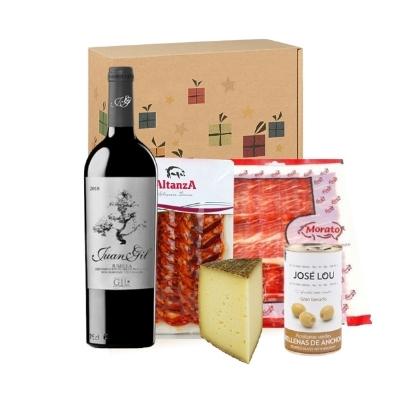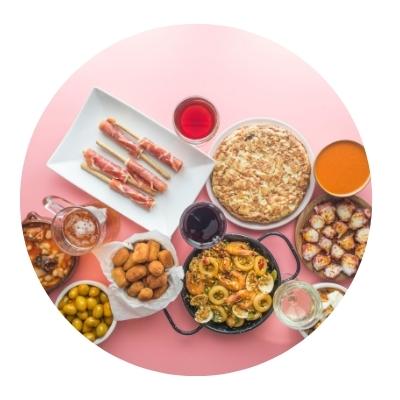Interview with Austrian chef Hans Neuner
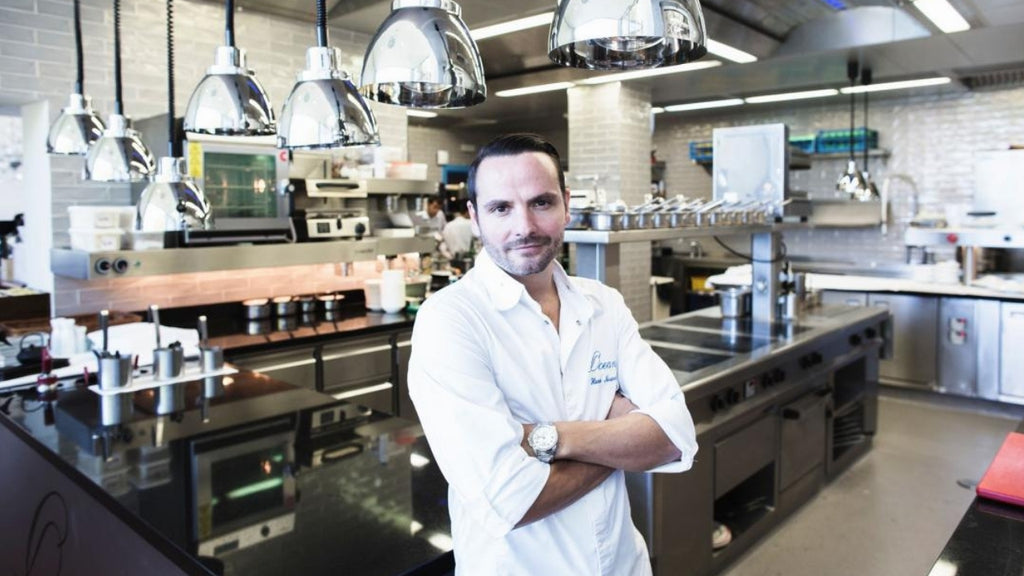
Austria's two-Michelin-starred top chef Hans Neuner brandishes his brand new machete, which he brought back from his latest voyage of discovery across the Portuguese Atlantic islands and the former colonies of Cape Verde and São Tomé and Príncipe, as a warm welcome during the video interview from his Ocean Restaurant for my gourmet blog. "Everyone there has one, so I really wanted one too," jokes the 45-year-old two-star Tyrolean chef, who uses it to chop off (not only) the banana leaves he needs for a dish on his "Islands Tour'' tasting menu at Ocean in the Algarve this year.
Question: Thank you for taking the time to talk to me, just at the start of the season at Ocean. What can someone expect when they visit you there for dinner this year?
Answer: This year's season here at Ocean is basically a continuation of what we started and created in the 2020s. Back then, mainland Portugal was the setting for the tasting menu. This year we thought of a two-culture variation and so we were on the Atlantic islands of Portugal, the islands that were essential for the voyages of discovery. Because the Portuguese had so much influence there, and still do. This year, we have prepared the menu in the same way as the Portuguese did their voyages of discovery. That is why the menu also has a leather sleeve, just like the ship's scrolls of the explorers. Where we also explain the background and history to the guests, when they were discovered and by whom. So that they also have something to read (laughs). This is how the menu is structured. The first snacks are from Lagos, in the Algarve, which was the most important port, and the first slave port, but of course we didn't bring slavery into it. We made small anchors as our first snack, which means, so to speak, we hoist the anchors, and the journey begins. Then we go to Terceira on the Azores, for which we have made the compound of bacalao (note: stockfish, cod) and citrus fruits. Without these two foods, no voyage of discovery would have been possible. Otherwise, they wouldn't have got far (laughs). The salt-preserved stockfish as a source of protein and the lemons with their vitamin C against scurvy. That is why there were huge citrus fruit plantations on the islands, Madeira but also the Azores 400 years ago. The ships were loaded with them and they sailed on again. In Terceira I did a long tour with a history professor who explained all the connections, why there are some spices on the Azores now and others not. On Madeira, for example, the spice cuisine is ridiculously small, which relates to the currents in the Atlantic, and how they were used by the navigators. The voyages of discovery only went with currents and sails. To get away from Portugal, Madeira was the first stop, then they entered the current that took them south. On the way back, for example from the Far East and India, the Azores (note on the Gulf Stream) were precisely the last anchorage before they reached the Portuguese mainland again. That is why there is the full spice programme in the Azores, almost unbelievable, cakes with eight or more spices. Ten spices, cinnamon, certain types of pepper, and much more, and these are recipes that are over 400 years old. The journey in our menu goes along this very route, from island to island. And there are still one or two ingredients missing, and a little fine-tuning, but we will have that sorted out and perfected by the beginning of May at the latest. There is also the Azores saffron, which I had on the menu last year. That was quite cool. But it is a completely different species (note: açaflor, lat. Carthamus tinctorius, the saffron of the poor) than the Spanish one (note: lat., Crocus Sativus), from La Mancha.

Question: What are the treasures you brought back from your last expedition to the Azores, Madeira, Cape Verde and São Tomé and Príncipe for your menus in the Ocean in the Algarve?
Answer: The Azores have incredible seafood and fish, and we now get large bear crabs (Scyllarides latus), live, and “lapas” snails (Patella vulgata), which attach themselves to rocks, and are of course great raw! From São Tomé, as I said, we have spices, cinnamon, vanilla, and cocoa. Those are the three things from São Tomé. And to be honest, you have certainly never seen a cinnamon like this. A real bark, almost as thick as your forearm. Incredibly good cinnamon, which we now have in the main course, with the chicken. On São Tomé, we only eat chicken and seafood anyway, although they are not nearly as good as on the Azores, and fish. Last week, the cocoa finally arrived. Raw, fresh beans. We do not make chocolate from them, we cook them. It is sometimes difficult with the delivery of products like the caracas (note: barnacles, lat. Megabalanus azoricus) from the Azores, which are only delivered once a week. That is unbelievable, really "brutal", (note: how Tiroleans like to say). And from São Tomé and Príncipe I always must ask stewardesses to smuggle the ingredients, spices like vanilla, cinnamon, cocoa beans in my hand luggage (laughs).
Question: The tuna from the Azores is famous anyway, and is also still caught in the traditional way ...
Answer: ... of course I have the fresh bluefin tuna from the Azores (note: it is still caught exclusively with a rod and hook and is available from Colono as a canned product in organic quality I also tried it again. On its migrations from the Cape of Good Hope in South Africa, it emerges from the Gulf Stream near the Azores before heading towards Gibraltar and the Mediterranean to spawn. There at the strait, the technique of fishing is still like that of the ancient Romans (note or that of the Phoenicians, "Almadraba", in southern Spain). Nets are weighted down with sandbags and the fish are lured into a labyrinth of passages where they are caught and killed. Most of the catch, however, goes directly from here to Japan; hardly anyone can afford this red tuna for cooking. With Vila Joya (note: two-star restaurant of Dieter Koschina, "neighbour" in the Algarve and close friend of Neuner) and three others in Portugal, we are the only ones who can afford this top tuna for our guests. On the Azores, by the way, there was also an incredible amount of whaling going on, well into the last century. This has only been banned for just under 40 years. And yes, about tuna again, here in the Algarve near Tavira there is also salted tuna, "muxama", like the "mojama" in Spain. But the tuna is at its best when it is at sea temperature, 21 degrees Celsius. We have tried that a few times now, and that's why I always send my tuna to the guests at exactly that temperature. The fat melts best and the flavour develops ideally.
Question: The season started at Ocean on 21 April, what about reservations?
Answer: On the first day we were, fortunately I must almost say, not completely full. I should not say that, otherwise we'd get punched in the mouth (laughs). Which was fine, but then on day two it really took off. We are full. Surprising, because the Germans are closed, they are closed, nobody's allowed to come. Now the Russians are all here, the Belgians, now they are coming to the Algarve and to us.
Question: The Azores are also known for winegrowing, as is Madeira, of course, and the Spanish Canary Islands, Lanzarote in the first place ...
Answer: If you are a wine lover, you should visit the Azores island of Pico to see how and in what immense style wine was grown there, and still is, even if on a much smaller scale. This is also a UNESCO World Heritage Site. I also posted a video about it on my Instagram at the end of April. They are square plots surrounded by stone walls about 30 to 50 cm high, which creates a microclimate for the vines. It's all grown by the sea, all squares. An immense effort. And yes, they make very good wines now, they have developed immensely in the ten years. 200 years ago, Pico was an immense wine producer, they exported everything to America. And now they are rebuilding it. And the wines are a hit. With wine, it always plays a big role in which setting and where you drink it.
Question: I also think the pineapple from the Azores is a hammer, incomparable with the imported products from overseas ... And top chefs in Portugal like to use this fruit, not only for desserts.
Answer: I have pineapple with me, of course, and the Azores also have the only tea plantation in Europe (note: Gorreana, since 1883), on the largest island of São Miguel. Someone told me that there is still one more in Europe, a really small cultivation area, but that on the Azores is the only plantation. It is primarily "only" black tea, but it is wonderful (note that green tea is also produced). And we have it on the menu now, in combination with a kombucha and with a yellowfin mackerel from the Azores, together with the pineapple: yes, it is great!

Question: You've been in Portugal for 13-14 years now. But before that you cooked in Mallorca, what highlights do you remember from there?
Answer: Of course, the young lambs marinated in wine barrels and then roasted are a highlight in Mallorca, that's the ultimate hit. No one else does that either. The sobrasada I also really, really like it. In northern Portugal, the very best is bred in Bairrada when it comes to suckling pigs, and they roast them incredibly well, which is just as unique. It is so good, it will surely blow the top of your head off! I was there a few days ago, an old, traditional farm, for over 50 years by now, and the grandfather chooses the animal and then it (note pt. the "Leitão") is roasted. In addition, there is the butcher for chouriço (note: paprika dry sausage, span. Chorizo) and other sausages. In Aveiro, the eel cuisine (Portuguese: Enguias) is a real hit, you just have to like eel. Then there are the perceves (Spanish: percebes, Latin: pollicipes pollicipes), and the lapas snails, the caracas, the barnacles that also grow on the whale, in the Azores they come in sheer immense sizes. And I first must build an aquarium here so that I can store them in my restaurant. They are only delivered once a week, which doesn't work out for me in the kitchen. You do not get Caracas every day either, it's really hard to get them to the mainland. But as soon as I have my tank, it works. It is a legendary product, and you won't find it anywhere else as good as in the Azores. You must be a seafood lover to enjoy it. If you only like schnitzel, forget it! But if you do not try everything, you live a relatively boring life. But everyone must know that for themselves.
Question: What do you always look for at the pier near the hotel, as I observed on Instagram?
Answer: There are lapas, or limpets, which we get every day. It does not get any fresher than that, straight onto your plate. And they are simply a hit raw.
Question: What about the wine pairing this year, in the Alentejo, where there are also fine rosé wines, in the Algarve, in the Douro or in the Dão, as well as with the Alvarinho, Portugal has top wines to offer.
Answer: Logically, on the menu anyway. On our wine list, they are all Portuguese regions, and of course they are also represented at the top. After all, we have about 1200 items in our cellar. This year we also have more Austrians on the menu. I finally got my way, and we have F.X. Pichler and Franz Hirtzberger from the Wachau. Otherwise, we usually "only" have Tement. Of course, we have a lot of Douro (note: brilliant reds and wonderful whites), Dão and also from here locally from the Algarve. Alentejo wines are less so, they are strong, with lots of tannins, you must like that. Bairrada is now coming up big with Spumante sparkling wines, I just drank this with suckling pig, a super Spumante. I also like the wine-growing region of Minho very much, because of the Vinho Verde (note: we have it in the cellar at Colono). It's simply ideal on the beach, and you can always do something after a bottle. Douro is also a UNESCO World Heritage Site, unique, to the typical Portuguese fango (note: chicken] piri-piri I just drank an awesome white Redoma from Niepoort today.

Question: What are the simple dishes that you particularly like, often from the working-class cuisine of Portugal or Spain? That could be a bifana beef sandwich, a salmorejo, or an ajoblanco, the almond-garlic soup that is enjoyed cold?
Answer: I even had an ajoblanco on my menu once (laughs). But the coolest thing here in Portugal are the traditional fish stews, caldeiradas de peixe and simple cataplana. I also find the stews that are thickened with bread in a cool fish-stock very delicious, as well as the açorda. The eel in the north is ingenious, a peasant dish that you can get everywhere on the streets. A risotto with limpets is heavenly, such as many rice dishes here, because the Portuguese grow a lot of rice, as do the Spanish.
Question: An idea for the readers, a spontaneous, quick tapa, a petisco?
Answer: The breaded, deep-fried octopus [Note: better fresh, but also works brilliantly out of the can! is brilliant, they are the very best petiscos. Lots of garlic, a bunch of onion, lots of coriander, a little egg and flour, it is not much more than that. Add some really spicy piri-piri sauce on top, and: Whoo, this is it! (laughs). They make petiscos here with everything, I like all the little fried fish, sardines and such, very much. And everything with lobster or the bear crabs we just got. In addition, Portugal has its 400 or more dishes of bacalao, depending on whether you like it or not, but there are some culinary top-hits among them. A classic is "à bras'', "dourado" (note: “golden”), crispy potatoes, egg, a few black olives, and people love it too. They have that in Spain, too.
Question: A big difference between Portuguese and Spanish cuisine is the use of coriander in Portugal, something I like very much.
Answer: Yes, like the clams here in the Algarve, à Bulhão Pato style, with some garlic, white wine, coriander. That's a really cool dish.
Question: What do you think about sustainability in fishing, based on your experience and all your travels?
Answer: From a global point of view, it has not caught on at all. And I do not think people are that interested in it. It is not as wild as some Netflix documentaries show, for example, in Portugal. We do not have trawlers here. Of course, there is more awareness here in Europe, but I was just on São Tomé, and they sold the fishing rights to China about 25 years ago. There, the trawlers, giant trawlers, that is a whole city at sea, sail around the island 24 hours a day, fish everything and load it onto freighters that take it to China. The president sits in the villa, and the rest of the population has nothing to eat in 20 years. This is a global issue. The sardines, the tuna, the whales, all come from the south, spawn, or give birth in certain waters, and migrate back again. It is a cycle, and if one part is missing, the whole system collapses. Sure, the affluent world is concerned about it. But that's ten percent of the world's population. The Spaniards were partly responsible for the fact that there is only one species of pulpo (octopus) left in the entire Mediterranean; I talked about this with Ferran Adrià last year. All the others have been fished away. And if you always must eat everything so small, there will be no more offspring. At some point there will be nothing left. I would very much like to see more focus on sustainability for the seas and oceans. In our contacts, now also with the Azores, we have seasonal catches and seafood. Caracas barnacles, for example, are available two or three weeks a year. Then it is illegal to harvest them. There is no product that is on the menu all year round. There are seasons, and in this season, there is also a very specific moment when the products are at their best. And that is it until the next year. In the meantime, you can eat everything all year round, but only once in really great quality. So, it's better to have really good food once than all the time.
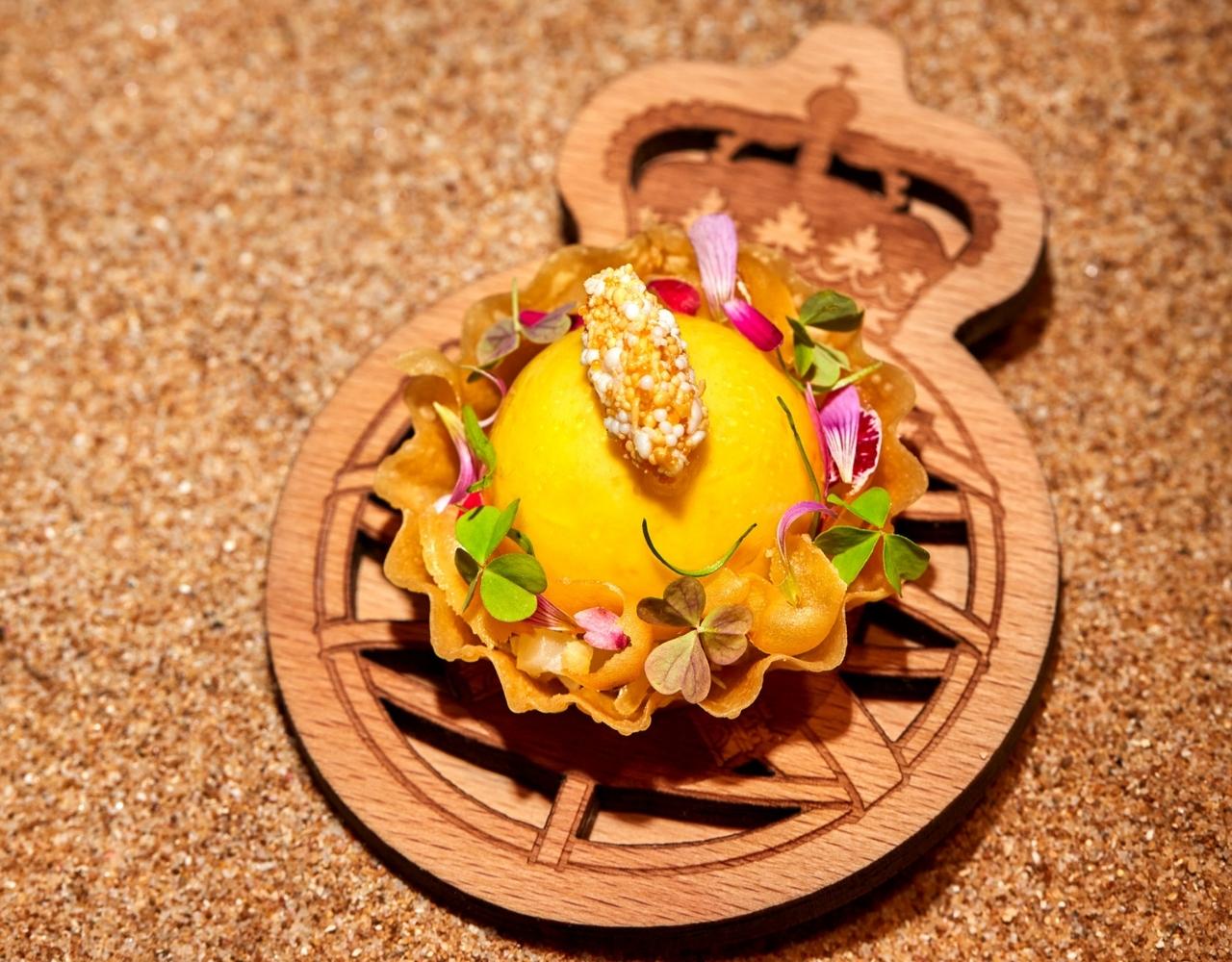
Question: What do you bring to your family and friends in Tyrol? For example, tinned fish from Portugal, for which they are famous?
Answer: No, nothing at all, I prefer to take something back to Portugal from there in Tyrol (laughs). No, of course I will bring something back as presents. A bottle of Madeira wine, I happened to find one, my vintage, 1976. And that is what I bring with me. A fine wine that costs a fortune at home, and which I get here for a good deal. But wine and food and ambience in general is so important.
Question: Yes, and your view of the Atlantic from the Ocean in the Algarve cannot be topped, even more so at sunset.
Answer: And when you see the fishing boats with a fisherman standing on them and casting the line. That's an incredibly beautiful view. It is still romantic, Portugal is still original, old-fashioned, and that's what makes it unique. It fits like a glove. If we all did it like the few fishermen out there, we wouldn't have the problem of overfishing. But we could not eat every shrimp, every fish every day either. And there are five edible fish that the world eats. But it's no different with the chicken, the chicken (note Austrian), the pig, the beef and so on. In Europe, turbot, sole, maybe red mullet, cod, my grandmother already said that they were also available after the Second World War. And the Portuguese always sold these fish, and the small, unmarketable ones were used in stews, like caldeirada. Now it's sole time, they will be top for another two weeks, then I will have to put another fish on the menu.
Question: Finally, after more than ten years with two Michelin stars, do you think the third will come soon?
Answer: I think it is in our nature to want to be better every day than we were yesterday. But the fact that I am now aiming so specifically for three stars, according to the motto, "I have to have three stars now", is not something I feel comfortable with. That is what it is all about: getting better and better. Guests keep asking me exactly that, the "three-star question". I then say, do not ask me, call Spain! The place is doing well, guests fly here from all over the world, we have a good reputation. So, I cannot imagine that this would become even more with three stars. But three stars are like an Oscar for the kitchen, and no one can take that away from you. Of course, people think about it. And I do not know if Portugal has the power, the lobby for three stars. We do not have our own guide, but one together with Spain. Of course, they are working on it, but it will take forever. But yesterday a chef from Ireland was there, two stars himself, and he said I had three stars. In Ireland they seem to think I already have them (laughs). But one day they'll clap. I still have time until retirement. And I find it nice that I have guests who stay in far cheaper hotels than the one Ocean is in, to be able to afford our menu. For them, the food is simply more important than the accommodation! So, I think that's kind of cool. How much time do you spend in the room? Most of the time you are driving around anyway, and looking at stuff, and in between you sleep in the hotel at most.
Short biography:
Hans Neuner (* 1976 in Leutasch, Tyrol) has been head chef at Ocean Restaurant in Porches on the Portuguese Algarve since 2007. After only two years, in 2009, he received his first Michelin star, and since 2011 he has consistently held two stars in the red gourmet guide. And the third is probably already within reach. At the age of 15, Neuner, the fourth generation of a chef's family, began his training as a chef at the Alpenkönig gourmet restaurant. His professional stations led him via St. Moritz (Carlton Hotel), London, the Bahamas, or the luxury cruise ship Crystal Symphony back to the Hotel Adlon to chef Karlheinz Hauser in Berlin and to the Seven Seas near Hamburg. To the gourmet magazine falstaff he revealed that he would like to cook for Quentin Tarantino one day.
Webtipps:
Hans Neuner on Instagram: @HansNeuner
Hans Neuner’s Ocean Restaurant at the Vila Vita Parc Hotel & Spa *****
This year’s menu „Islands Route“ (PDF):
https://en.calameo.com/read/002811237216a9c15ad25
Reservations:
info@restauranteocean.com
+351 282 310 100
Rua Anneliese Pohl, Alporchinhos
PT-8400-450 Porches · Algarve, Portugal
---
SHARE:
